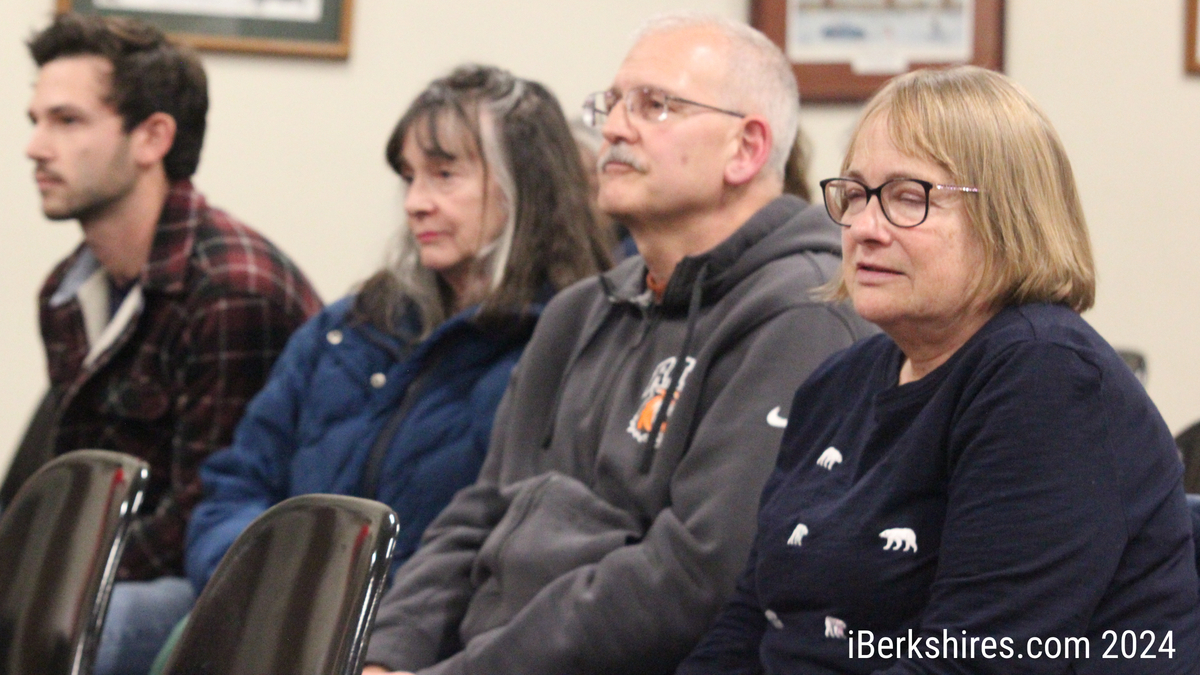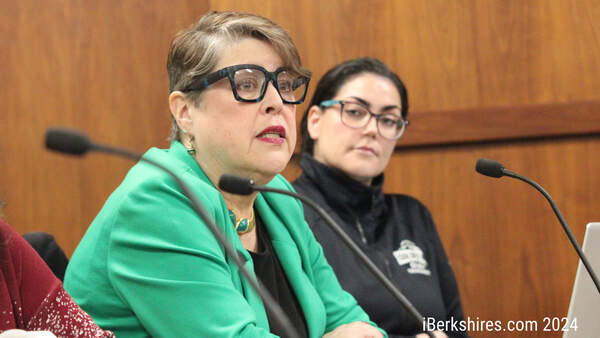Subcommittee Mulls Pittsfield Schools' Cell Phone Policy
PITTSFIELD, Mass. — A school official drifted into a "chicken or the egg?" direction regarding the negative implications of cell phones during a policy meeting.
"I understand where the cell phone mental health issue is coming from and I do think a lot of it is social media driven," said School Committee member William Garrity, who is two years out of high school.
"As a person who now uses social media, it's just awful and I think that's where a lot of it comes from but I also know I have friends with mental health issues who don't really use social media and so I had this thought, nowadays, more mental health problems are more apparent than it was 10, 20, 30, 40, 50, 60 years ago so I'm wondering how much of what we're seeing is driven by cell phones compared to the more awareness about mental health problems."
Last Wednesday evening, the Social and Emotional Learning subcommittee did not decide whether the chicken or the egg came first. Still, it continued the conversation about the district's regulations.
Superintendent Joseph Curtis would like to see the district's cell phone policy tightened up after more than 6,000 violations were accrued in the previous school year. A three-tiered response plan was approved about a year ago though he feels that it might be time to review it and lessen the number of warnings students are given "because we are clear about the expectation that cell phones not be used during instruction."
Administrators will reconvene in August to devise a plan that could mean locked cell phone cases — Yondr cases — for middle and high school students or increased regulations.
"Our teenagers are in a tough spot right now and sort of coinciding with that is cell phone use," Deputy Superintendent Matthew Bishop said.
Surveying has shown that some teachers view the current policy as too paperwork-heavy, confusing, and a difficult lift. There were also reported inconsistencies in penalties, with some instructors being more lenient than others.
Many district families agree with the current cell phone policy and some would like it to be more strict. Families in opposition would like students to have access to their phones in the case of an emergency and don't like schools confiscating them.
Bishop reported that there are mixed feelings about it but the reality is that 6,000 referrals "takes a lot of time, effort, and energy."
"It's not great for students and it's not great for staff to be processing that many referrals from cell phones. So we're going to be looking at this and I know we're going to be doing a lot more outreach on phones," he said.
Garrity understands the advantages of increased communication with a cell phone but pointed to a "mass exodus" of students one day during his senior year that was caused by a false accusation of a weapon on campus that was posted to social media.
"You don't want the cell phones to be creating more obstruction and causing more problems than what is really happening so I can see that," he said.
"I think I do agree the policy is a little lenient. I think you need to tighten it up."
Committee member Dominick Sacco, a veteran school adjustment counselor, recalled seeing tired-looking students shuffling down the hallways. When asked how they slept last night, a common reply would be "Not very well."
"And I know it wasn't because they are a toothache or a headache but a device and I think the habits that take place in the community, out of school, all have to be factored in," he said.
"And we have no control, obviously, but that's something that adds to that addiction piece."
He explained that depression and anxiety are on the rise because there is a lot of competition on social media and "that is something that is very powerful."
While it was argued that taking away phones would encourage better communication during lunchtime, subcommittee members agreed that cell phone use during lunch is not of concern.
Diana Belair said her son plays games on his phone during lunch with friends.
"They're all playing the same game on their phones but they're still chatting about it and competing with each other and it's very social," she said. "It's not a board game, it's a game on your phone but that doesn't make it any less of a game or social interaction."
Sacco pointed out that students with sensory issues use the phone as a coping mechanism in loud situations such as lunchtime.
Yondr pouches, which have grown in popularity as schools grapple with smartphone regulations, will cost around $125,000 to implement, which includes $95,000 for leasing and the rest in stipends for 30 faculty members at the middle and high schools who will perform morning lockups and unlocks at the end of the day.
Garrity pointed out that the pouches can be defeated with an inexpensive magnet bought on Amazon.
"And I think spending $120,000 on a pouch system that can be defeated by students getting an $8 magnet off of Amazon is not a productive use of administrative time dealing with that but also not a good use of taxpayer funds," he said, explaining that he is still trying to wrap his head around the "outrageous" cost.
Tags: phone,
















